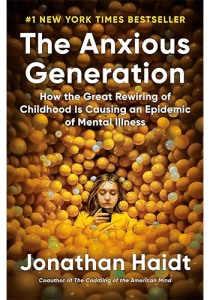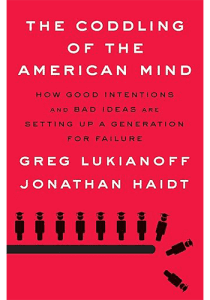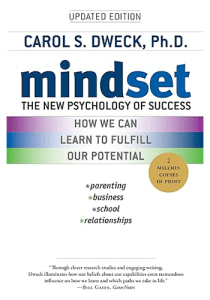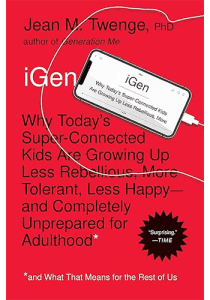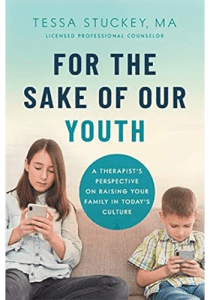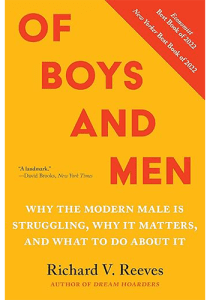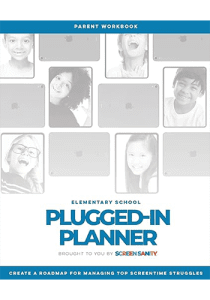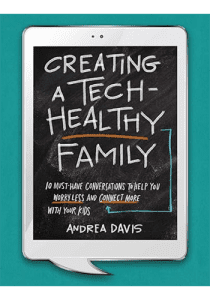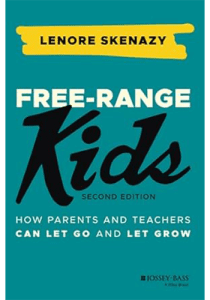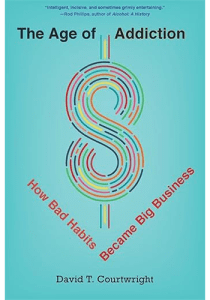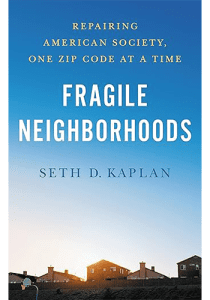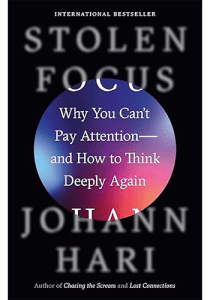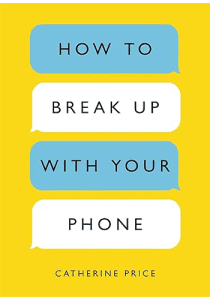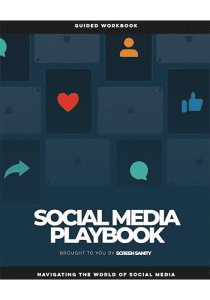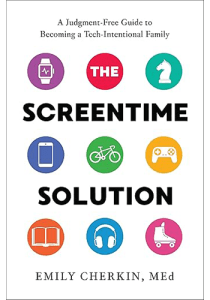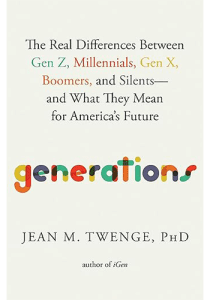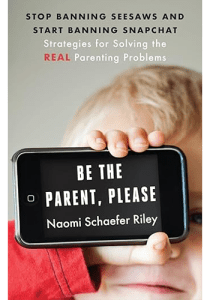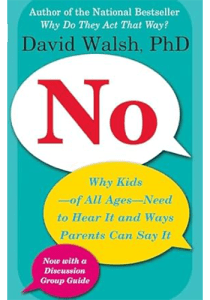
Parent Academy Resources
In The Anxious Generation, social psychologist Jonathan Haidt lays out the facts about the epidemic of teen mental illness that hit many countries at the same time. He then investigates the nature of childhood, including why children need play and independent exploration to mature into competent, thriving adults.
First Amendment expert Greg Lukianoff and social psychologist Jonathan Haidt, author of The Anxious Generation, show how the new problems on campus have their origins in three terrible ideas that have become increasingly woven into American childhood and education: What doesn’t kill you makes you weaker; always trust your feelings; and life is a battle between good people and evil people. These three Great Untruths contradict basic psychological principles about well-being and ancient wisdom from many cultures.
In this brilliant book, Carol S. Dweck, Ph.D. shows how success in school, work, sports, the arts, and almost every area of human endeavor can be dramatically influenced by how we think about our talents and abilities. People with a fixed mindset—those who believe that abilities are fixed—are less likely to flourish than those with a growth mindset—those who believe that abilities can be developed. Mindset reveals how great parents, teachers, managers, and athletes can put this idea to use to foster outstanding accomplishment.
Born in the mid-1990s up to the mid-2000s, iGen is the first generation to spend their entire adolescence in the age of the smartphone. With social media and texting replacing other activities, iGen spends less time with their friends in person—perhaps contributing to their unprecedented levels of anxiety, depression, and loneliness.
“An enduring work of survival literature,” according to the New York Times, Viktor Frankl’s riveting account of his time in the Nazi concentration camps, and his insightful exploration of the human will to find meaning in spite of the worst adversity, has offered solace and guidance to generations of readers since it was first published in 1946. At the heart of Frankl’s theory of logotherapy (from the Greek word for “meaning”) is a conviction that the primary human drive is not pleasure, as Freud maintained, but rather the discovery and pursuit of what the individual finds meaningful.
In For the Sake of Our Youth, licensed professional counselor, mother to four boys, and first-time author Tessa Stuckey shares what she has learned about today’s youth and the struggles they face in our current culture. Through her work, Tessa has become well versed in depression, anxiety, and suicidal thoughts in young people, and she believes that suicidal ideation among children is on the rise. It has become a big cultural storm—a storm that we haven’t prepared for.
In this widely praised book, Richard Reeves, father of three sons, a journalist, and now the president of the American Institute for Boys and Men, tackles the complex and urgent crisis of boyhood and manhood. He argues that our attitudes, our institutions, and our laws have failed to keep up. Conservative and progressive politicians, mired in their own ideological warfare, fail to provide thoughtful solutions.
The Elementary School Plugged-in Planner covers a variety of digital health topics, including preparing children for online hazards, creating healthy screentime rhythms and engaging with technology in higher quality ways. Screen Sanity meets the reader where they are in the parenting journey, and helps them reflect, prioritize and envision a digital road map for the years ahead.
Parents need a strategy, a workable plan to help them navigate technology while strengthening their bond with their kids.
Creating a Tech-Healthy Family gives you the tools, resources, and the points of discussion to create your Family Technology Plan so you can create healthy tech boundaries and feel more confident in your ability to raise children in a digital world.
New York columnist-turned-movement leader Lenore Skenazy delivers a compelling and entertaining look at how we got so worried about everything our kids do, see, eat, read, wear, watch and lick — and how to bid a whole lot of that anxiety goodbye. With real-world examples, advice, and a gimlet-eyed look at the way our culture forces fear down our throats, Skenazy describes how parents and educators can step back so kids step up. Positive change is faster, easier and a lot more fun than you’d believe. This is the book that has helped millions of American parents feel brave and optimistic again – and the same goes for their kids.
We live in an age of addiction, from compulsive gaming and shopping to binge eating and opioid abuse. Sugar can be as habit-forming as cocaine, researchers tell us, and social media apps are deliberately hooking our kids. But what can we do to resist temptations that insidiously rewire our brains? A renowned expert on addiction, David Courtwright reveals how global enterprises have both created and catered to our addictions. The Age of Addiction chronicles the triumph of what he calls “limbic capitalism,” the growing network of competitive businesses targeting the brain pathways responsible for feeling, motivation, and long-term memory.
In Fragile Neighborhoods, fragile states expert Seth D. Kaplan offers a bold new vision for addressing social decline in America, one zip code at a time. By revitalizing our local institutions—and the social ties that knit them together—we can all turn our neighborhoods into places where people and families can thrive.
In the United States, teenagers can focus on one task for only sixty-five seconds at a time, and office workers average only three minutes. Like so many of us, Johann Hari was finding that constantly switching from device to device and tab to tab was a diminishing and depressing way to live. He tried all sorts of self-help solutions—even abandoning his phone for three months—but nothing seemed to work. So Hari went on an epic journey across the world to interview the leading experts on human attention—and he discovered that everything we think we know about this crisis is wrong.
Is your phone the first thing you reach for in the morning and the last thing you touch before bed? Do you frequently pick it up “just to check,” only to look up forty-five minutes later wondering where the time has gone? Do you say you want to spend less time on your phone—but have no idea how to do so without giving it up completely? If so, this book is your solution.
While we all love the convenient connection and entertainment social media brings to our lives, many of us struggle to keep these platforms in their proper place. So when it comes to prepping our kids to develop a healthy approach to social media? #Fuhgeddaboudit. That’s why we created this conversation-starting tool for families— a secret weapon to help you equip your kids to think critically about the social media world. Brought to you by the team at westartnow.org—a nonprofit helping families raise kids to stay captivated by life, not screens.
In The Screentime Solution, Emily Cherkin teaches parents to become “tech-intentional”: using screen-based technologies to enhance, nurture, and align with family values while avoiding, delaying, or limiting screentime that interferes with healthy mental, physical, cognitive, and emotional development.
Upending the conventional theory that generational differences are caused by major events, Dr. Jean Twenge analyzes data on 39 million people from robust national surveys—some going back nearly a century—to show that changes in technology are the underlying driver of each generation’s unique makeup. In this revelatory work, Twenge outlines key shifts in attitudes and lifestyle choices that define each generation regarding gender, income, politics, race, sexuality, marriage, mental health, and much more.
In Be the Parent, Please, former New York Post and Wall Street Journal writer Naomi Schaefer Riley draws from her experience as a mother of three and delves into the latest research on the harmful effects that excessive technology usage has on a child’s intellectual, social, and moral formation. Throughout each chapter, she backs up her discussion with “tough mommy tips”—realistic advice for parents who want to take back control from tech.
Now, successful psychologist, bestselling author, and nationally known parenting expert Dr. David Walsh provides you with an arsenal of tactics, explanations, and examples for using No the right way with your kids. His memorable, affecting, and sometimes humorous anecdotes help you regain confidence in your own judgment and ability to say No as they remind you that you’re not alone in your parenting struggles. With Dr. Walsh’s down-to-earth advice, you can immediately assess and improve your relationship with your kids, set and enforce limits that make sense for different ages (from toddlers to teens), and otherwise make No a positive influence on kids’ behavior and in your overall family life.
Articles & Videos

Smartphones: Assessing Readiness | Children and Screens
Wait Until 8th: Digital Training Family Conversation Guides | Wait Until 8th
Let Grow’s Parent Resources | Let Grow
How to Break Up with Your Phone | Catherine Price
Armchair Expert: Lenore Skenazy | Armchair Expert
Social Media is Disproportionately Hurting Girls | After Babel

